In the United States, a bitter battle broke out in between the Church and the government on January 20, when the US Department of Health and Human Services issued new guidelines requiring most religious institutions to pay for health coverage even if they find aspects of it morally objectionable, including contraception.
The US bishops drew a line in the sand. Across the country, a letter on the matter was read to the faithful during the homily at Mass on January 29, explaining why the bishops believe the new guidelines are immoral and needed to be overturned or disobeyed.
This vast protest had a result. On February 10, President Barack Obama announced changes in the guidelines, saying religious employers could decline to cover contraceptives if they were morally opposed to them.
However, he said, health plans would still be required to offer contraceptives free of charge to women who requested such coverage. This raised questions about how the revision announced by the president would pertain to the many Catholic organizations that are self-insured and whether it could still force entities morally opposed to contraception to pay for such services. And the debate continued to rage…
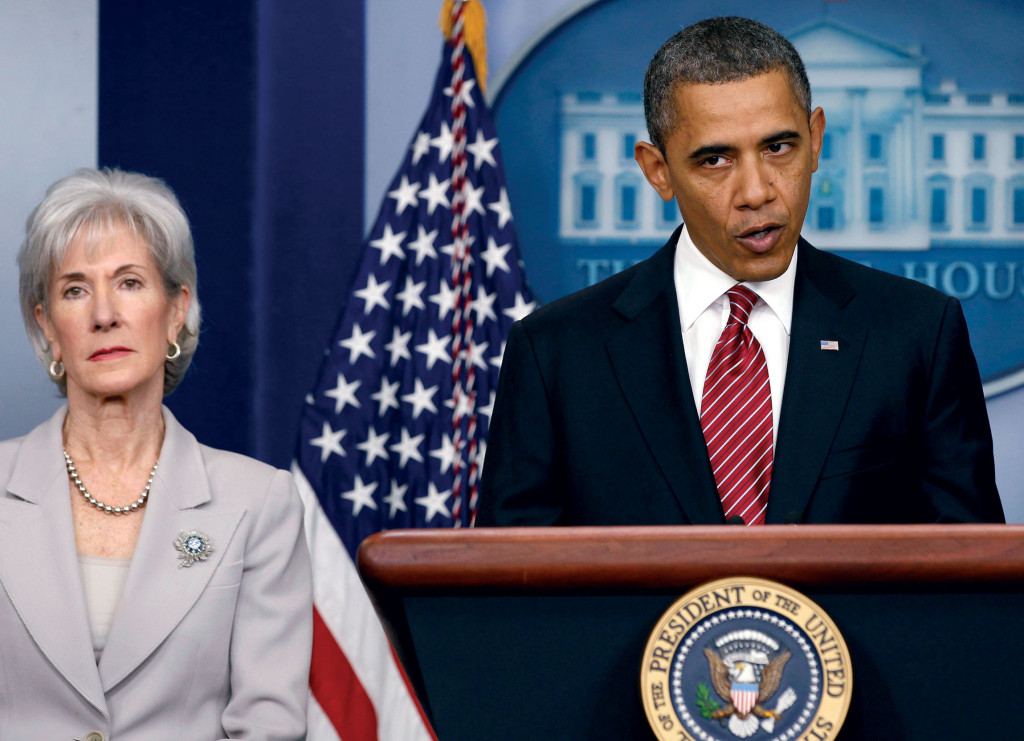
U.S. President Barack Obama during a statement at the White House in Washington February 10 about the federal mandate on contraceptive coverage.
Kathleen Sebelius, Secretary of Health and Human Services, is next to Barack Obama
(CNS photo)
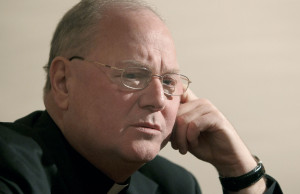
“What (Obama) offered was next to nothing. There’s no change, for instance, in these terribly restrictive mandates and this grossly restrictive definition of what constitutes a religious entity… The principle wasn’t touched at all.” -Timothy M. Dolan
Cardinal-designate Timothy Dolan of New York said on February 13 that President Barack Obama’s recent revision to a contraceptive mandate in the US government’s health reform law did nothing to change the US bishops’ opposition to what they regard as an unconstitutional infringement on religious liberty.
“We bishops are pastors, we’re not politicians, and you can’t compromise on principle,” Dolan, president of the US Conference of Catholic Bishops, said. “And the goal posts haven’t moved and
I don’t think there’s a 50-yard line compromise here,” he said. “We’re in the business of reconciliation, so it’s not that we hold fast, that we’re stubborn ideologues, no. But we don’t see much sign of any compromise. What (Obama) offered was next to nothing. There is no change, for instance, in these terribly restrictive mandates and this grossly restrictive definition of what constitutes a religious entity. The principle wasn’t touched at all.”
Announced February 10, Obama’s revision of the Department of Health and Human Services’ contraceptive mandate left intact the restrictive definition of a religious entity and would shift the costs of contraceptives from the policyholders to the insurers, thus failing to ensure that Catholic individuals and institutions would not have to pay for services that they consider immoral, Dolan said.
For one thing, the cardinal-designate said, many dioceses and Catholic institutions are self-insuring.
Moreover, Catholics with policies in the compliant insurance companies would be subsidizing others’ contraception coverage. He also objected that individual Catholic employers would not enjoy exemption under Obama’s proposal.
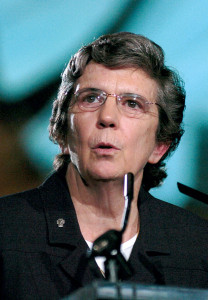
(She) praised what she called “a resolution … that protects the religious liberty and conscience rights of Catholic institutions.”
-Sr. Carol Keehan
“My brother-in-law, who’s a committed Catholic, runs a butcher shop. Is he going to have to pay for services that he as a convinced Catholic considers to be morally objectionable?” he asked.
Some Catholics saw Obama’s “compromise” as an improvement. In a February 10 statement, Sister Carol Keehan praised what she called “a resolution… that protects the religious liberty and conscience rights of Catholic institutions.”
But Dolan said he emailed Sister Keehan, a Daughter of Charity who heads the Catholic Health Association, on February 10 to tell her that he was “disappointed that she had acted unilaterally, not in concert with the bishops.”
“She’s in a bind,” Dolan said of Sister Carol. “When she’s talking to (HHS Secretary Kathleen) Sebelius and the president of the United States, in some ways, these are people who are signing the checks for a good chunk of stuff that goes on in Catholic hospitals. It’s tough for her to stand firm. Understandably, she’s trying to make sure that anything possible, any compromise possible, that would allow the magnificent work of Catholic health care to continue, she’s probably going to be innately more open to it than we would.”
Dolan said Obama called him the morning of his announcement to tell him about the proposal.
“What we’re probably going to have to do now is be more vigorous than ever in judicial and legislative remedies, because apparently we’re not getting much consolation from the executive branch of the government,” Dolan said.
Dolan said the bishops are “very, very enthusiastic” about the Respect for Rights of Conscience Act, introduced by Rep. Jeff Fortenberry, R-Nebraska.
The cardinal said the legislation would produce an “ironclad law simply saying that no administrative decrees of the federal government can ever violate the conscience of a religious believer individually or religious institutions.”
“It’s a shame, you’d think that’s so clear in the (US) Constitution that it wouldn’t have to be legislatively guaranteed, but we now know that it’s not,” he added.
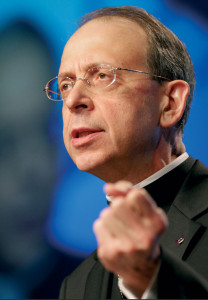
“Our religious freedom is too precious to be protected only by regulation”… “It needs legislative protection. More legislators, I think, are looking at it. There’s more bipartisan support for it. There should be a lot of pressure exerted on Congress to pass it and for the president to sign it.”
-William E. Lori
Bishop William Lori of Bridgeport, Connecticut, chairman of the bishops’ Ad Hoc Committee for Religious Liberty, echoed what Dolan said about the need for legislative action to enact a religious right to conscience protection into federal law.
“Our religious freedom is too precious to be protected only be regulations,” Bishop Lori said. “It needs legislative protection. More legislators, I think, are looking at it. There’s more bipartisan support for it. There should be a lot pressure exerted on Congress to pass it and for the president to sign it.”
In Rome for the consistory at which he would be made a cardinal, Dolan said that some “very prominent attorneys,” some of them non-Catholic and even nonreligious, had already volunteered to represent the bishops.
“We’ve got people who aren’t Catholic, who may not even be religious, who have said, ‘We want to help you on this one.’ We’ve got very prominent attorneys who are very interested in religious freedom who say, ‘Count on us to take these things as high as we can.’ And we’re going to.”
He said the bishops draw hope for that fight from the Supreme Court’s recent unanimous ruling in Hosanna-Tabor v. EEOC, a case regarding the ministerial exception.
“You’d think that (the Obama administration) would be able to read the tea leaves, that these things are going to be overthrown,” Dolan said.
Bishop Lori said that only after the original rule regarding contraception and sterilization coverage was revised and ready to be announced February 10 did the White House contact Dolan and the USCCB.
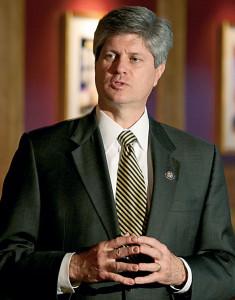
The cardinal-designate (Dolan) said the bishops are “very, very enthusiastic” about the Respect for Rights of Conscience Act, introduced by Rep. Jeff Fortenberry, R-Neb.
Lori suggested that Obama administration officials would have better understood the concerns religious organizations have about the rule had they tried to talk with the Catholic bishops, evangelicals and Orthodox Church leaders who objected to the measure.
“That certainly did not happen,” he said.
Such a meeting would have allowed the bishops “to bring it home that our ministries of charity, health care and education flow from what we believe and how we worship and how we are to live.”
An administration official wrote in an email February 13 that the White House planned to convene a series of meetings “with faith-based organizations, insurers and other interested parties to develop policies that respect religious liberty and ensure access to preventive services for women enrolled in self-insured group health plans sponsored by religious organizations.”
Cardinal urges Senate to pass bill protecting conscience
The chairman of the US bishops’ Committee on Pro-Life Activities called on members of the US Senate February 15 to solve conscience protection problems with the federal health reform law by passing the Respect for Rights of Conscience Act.
By resolving a “needless dispute,” Congress and the Obama administration “could return to the most pressing of all the real problems — the fact that many millions of Americans still lack basic coverage for health care,” said Cardinal Daniel DiNardo of Galveston-Houston.
In a three-page letter to senators, Cardinal DiNardo said the legislation — which now has 37 sponsors in the Senate — might come up for a vote soon, “either as a free-standing bill or an amendment.”
Calling the bill “needed, reasonable and carefully crafted,” he said it “simply ensures that new requirements” under the Patient Protection and Affordable Care Act “are not used to take away a freedom of conscience that Americans have enjoyed under federal law until now.”
The bishops “saw the need for this legislation,” the cardinal said, when Congress passed health care reform and “authorized new lists of federally mandated benefits for all health plans without including language to preserve rights of conscience.”
DiNardo rejected the final rule announced February 10 by President Barack Obama that would allow organizations with religious objections to the Department of Health and Human Services’ requirement that all health insurance plans cover contraceptives and sterilization to decline to cover them, but then compel the insurers to provide contraceptives free of charge to women they insure.
Under that plan, religious employers will be required to “include the same objectionable coverage as purely secular employers do — but the decision to do so will simply be taken away from them, as the coverage will be inserted into their plan directly by the insurer over their objections,” he said.
The objecting employers will still pay for the coverage, he added, because it “will be integrated into their overall health plan and subsidized with the premiums paid by employer and employee for that plan.”
HHS Secretary Kathleen Sebelius first announced the contraception requirement along with a religious exemption January 20. Catholic and other religious leaders say the exemption is written so narrowly that institutions such as hospitals, schools and social service agencies would not qualify.
Since Obama announced his final rule on February 10, questions have been raised over how it will pertain to self-insured parties, like many dioceses and Catholic organizations.
Cardinal DiNardo called the contraception requirement “a radical departure from current law, under which a health plan that excludes contraception can be sold even to federal employees if the carrier has any religious objections to such coverage.”
“In short, we are back to square one — except that the rule so many hoped would change to accommodate Americans’ right of conscience is no longer subject to change, except by legislation,” he said.
The Respect for Rights of Conscience Act stipulates that the list of mandated benefits under the health reform law will not forbid those who provide, sponsor or purchase health coverage from negotiating a health plan that is consistent with their religious beliefs and moral convictions.
The cardinal also offered rebuttals to some misinterpretations about what the proposed law would and would not do:
— No “stakeholder in the health coverage enterprise” would be required to provide or accept the negotiated plan. “But if all involved find an accommodation acceptable and workable, why would the federal government not allow it — as it always has in the past?” he asked.
— It does not overturn other existing state or federal laws, including present state contraceptive mandates.
— It would not “provide any support for discriminatory decisions to withhold basic coverage from some while giving it to others,” such as a decision to deny life-saving care to people with AIDS or the virus that causes it.
— It would not “allow anyone to deny coverage for high-cost treatments, using morality and religion as a pretext.”
Cardinal DiNardo said the Catholic Church, “driven precisely by its faith, is eager to work with Congress and the administration to address (the) grave problem” of the lack of basic health care for millions.
“Let us begin the task by respecting each other’s values that call so many of us to work for life-affirming health care for all in the first place,” he added.
Revised contraceptive mandate prompts reaction from Catholic groups
A former U.S. ambassador to the Vatican and the president of The Catholic University of America were among 300 signers of a letter which called President Obama’s revision to a federal contraceptive mandate “unacceptable” and said it remains a “grave violation of religious freedom and cannot stand.”
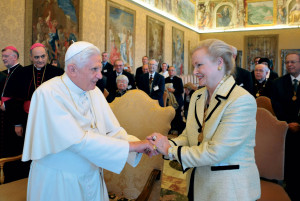
It was “an insult to the intelligence of Catholics, Protestants, Eastern Orthodox Christians, Jews, Muslims, and other people of faith and conscience to imagine that they will accept an assault on their religious liberty if only it is covered up by a cheap accounting trick.”
-Prof. Mary Ann Glendon
The letter, signed by former Ambassador Mary Ann Glendon of Harvard and Catholic University’s John Garvey, along with professors and other academics, and Catholic and other religious leaders, said it was “an insult to the intelligence of Catholics, Protestants, Eastern Orthodox Christians, Jews, Muslims, and other people of faith and conscience to imagine that they will accept an assault on their religious liberty if only it is covered up by a cheap accounting trick.”
Other critics also said the change was a matter of semantics and still failed to address the conscience rights of faith groups and the issue of religious liberty.
Supporters, including organizations such as Catholics United and Catholic Democrats, said it was a viable response that would keep conscience rights intact and address the health care needs of women.
Still others who opposed the contraceptive mandate said the revision could be a step in the right direction but needed more study because many questions “remained unanswered.”
Catholic Charities USA said February 16 that contrary to media reports the organization has “not endorsed” the revision announced by Obama.
“We unequivocally share the goal of the US Catholic bishops to uphold religious liberty and will continue to work with the USCCB (US Conference of Catholic Bishops) toward that goal,” it said in a statement posted on its website.
Michael Galligan-Stierle, president of the Association of Catholic Colleges and Universities, said his organization has “conveyed to the administration that we are interested and deeply committed to ongoing conversation” about the issue.
“We look forward to more in-depth, serious negotiations based on religious liberty being the primary issue on the table,” he added.
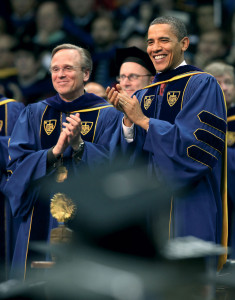
Holy Cross Father John I. Jenkins, president of the University of Notre Dame, and U.S. President Barack Obama applaud during the commencement ceremony at the University of Notre Dame in Notre Dame, IN, May 17, 2009 (CNS photo)
Holy Cross Father John Jenkins, president of the University of Notre Dame, who has called the Health and Human Services mandate “profoundly disturbing on many levels,” said Obama’s revision was a “welcome step toward recognizing the freedom of religious institutions to abide by the principles that define their respective missions.”
In a February 10 statement on the university’s website, he said that a “number of unclear and unresolved issues” must be addressed and he hoped they would be discussed in future meetings of US bishops and other religious leaders and White House officials.
The Catholic Health Association, in a February 13 statement on its website, said it was looking forward to “reviewing the specifics of the changes in the mandated benefits.”
“On Friday, February 10, 2012, we were notified that our organizations would not have to buy or refer employees for contraception and other services. We were also told that the self-insured plans would be accommodated in this,” the CHA statement said. “At this time, there are many unanswered questions about specifics. We now have the challenging work of reviewing the proposed rules, examining their impact and giving input before they are finalized.
“As more is known about this, we will be getting that information out to the membership as quickly as possible.”
As published in the Federal Register February 15, the final rule said Health and Human Services “will work with stakeholders to propose and finalize this policy” before it takes effect in August 2013.
A February 10 statement by the Cardinal Newman Society said it would “continue to work with Catholic colleges and universities to find the most acceptable solution to this violation of their religious liberty. But there can be no compromise that does not eliminate the mandate.”
Last fall, 18 Catholic colleges asked the Obama administration to exempt all religious individuals and institutions from being forced to participate in the federal contraception mandate.
The Dominican Sisters of Mary Mother of the Eucharist in Ann Arbor, Mich., issued a February 13 statement taking the Obama administration to task for failing to “comprehend Catholic moral reasoning and the full meaning of the principle of religious liberty.” They called it “insulting” that the Obama administration suggested the revision would be “net cost neutral.”
“It is simply impossible to ensure that the insurance companies will not pass on those costs to the organizations and individuals who conscientiously object to their insurance policies covering abortion-inducing drugs, sterilization, and artificial contraception,” the statement said.
The Leadership Conference of Women Religious, based in Silver Spring, Maryland, called the revised mandate “fair and a helpful way for us to move forward.”
“This ruling is a major victory for religious liberty and women’s health,” said a statement signed by several professors at Catholic universities and other religious leaders including Sister Simone Campbell, a Sister of Social Service who leads Network, the Catholic social justice lobby.
In Michigan, the Catholic conference of the state’s bishops applauded the state House of Representatives for passing a resolution that calls on the Obama administration to rescind the HHS mandate, highlights the administration’s “attack on religious freedom” and urges the U.S. House and Senate to pass the Respect for Rights of Conscience Act.
Reporting by Francis S. Rocca and Dennis Sadowski of Catholic News Service.

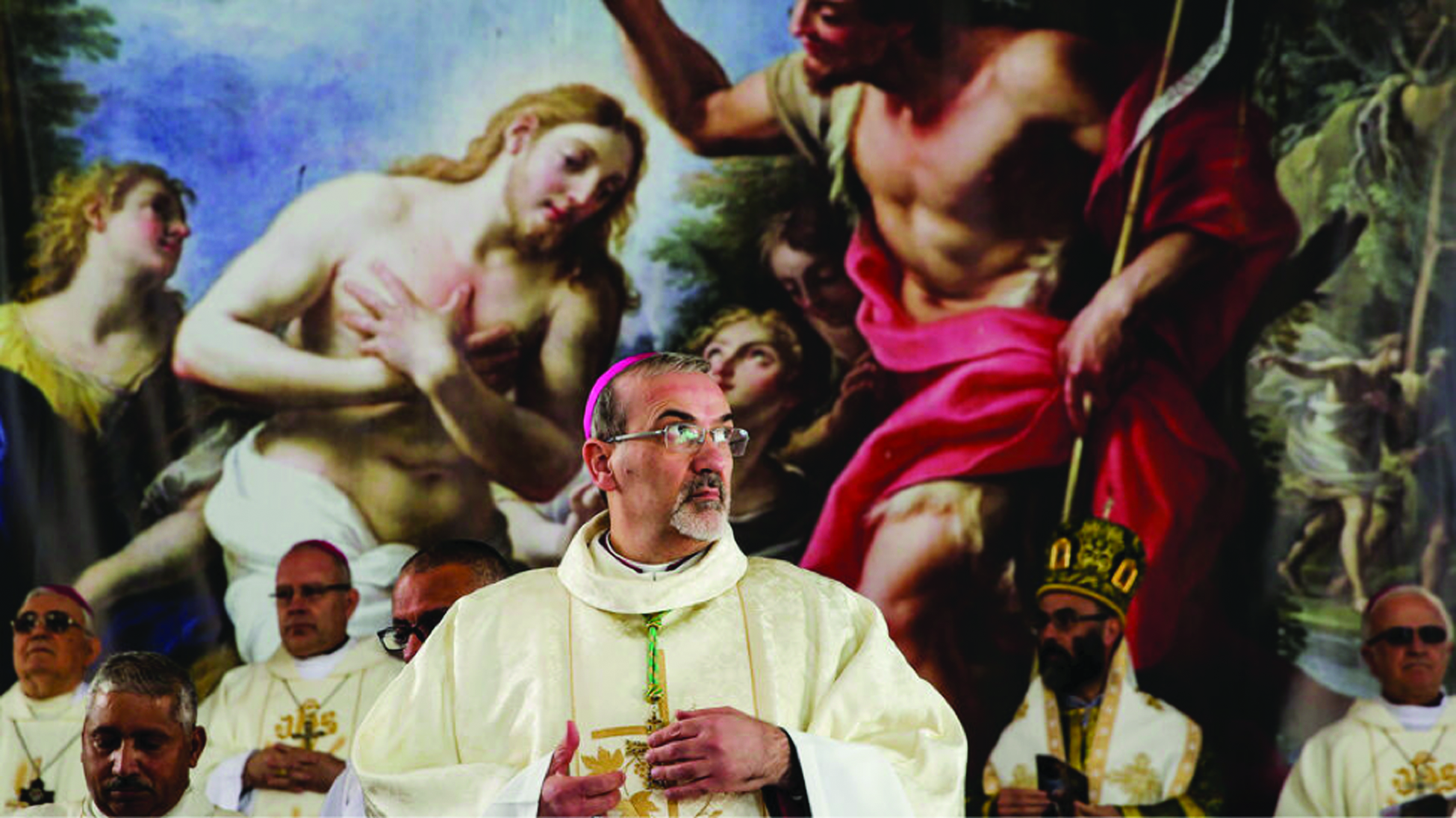

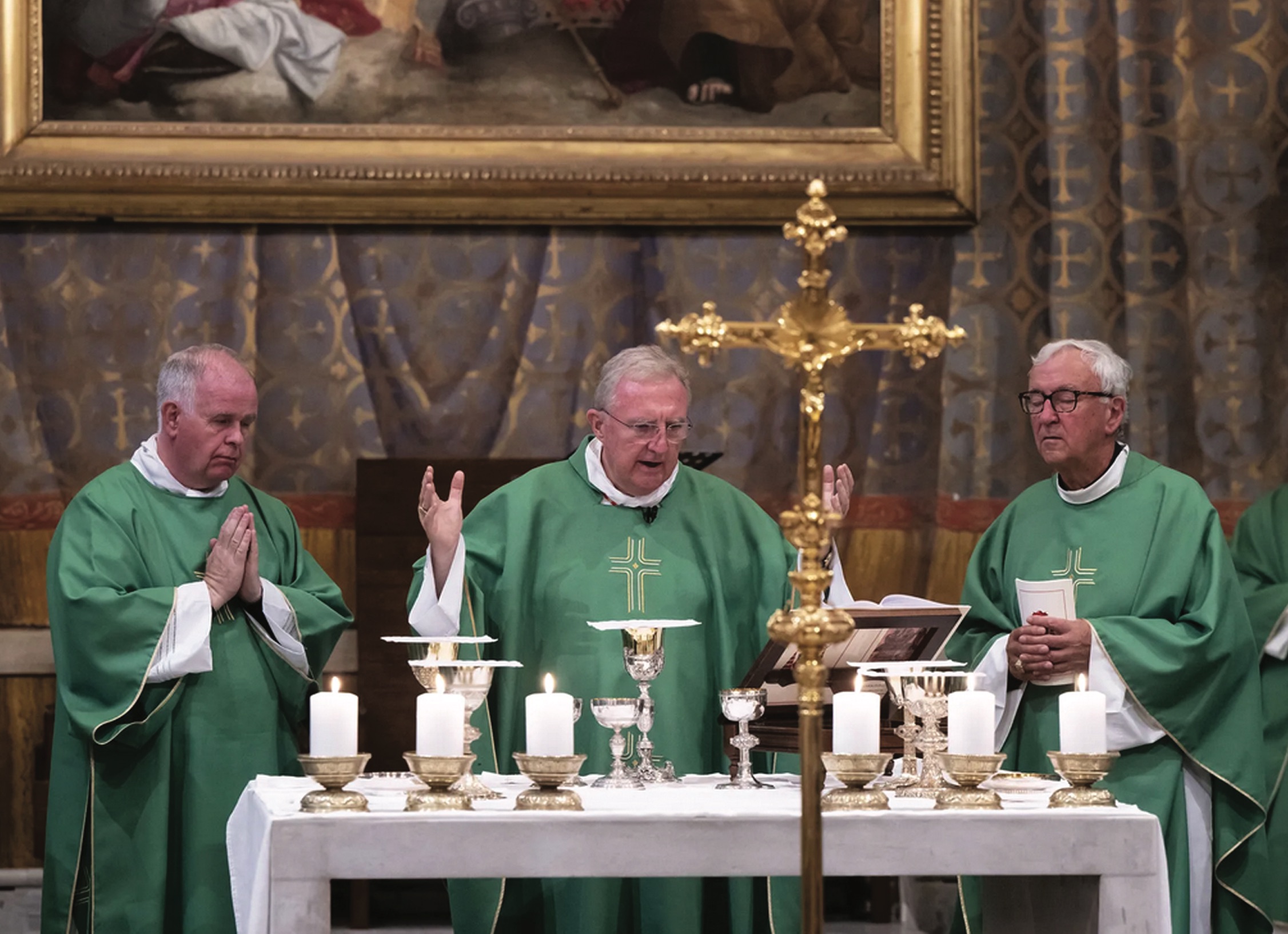
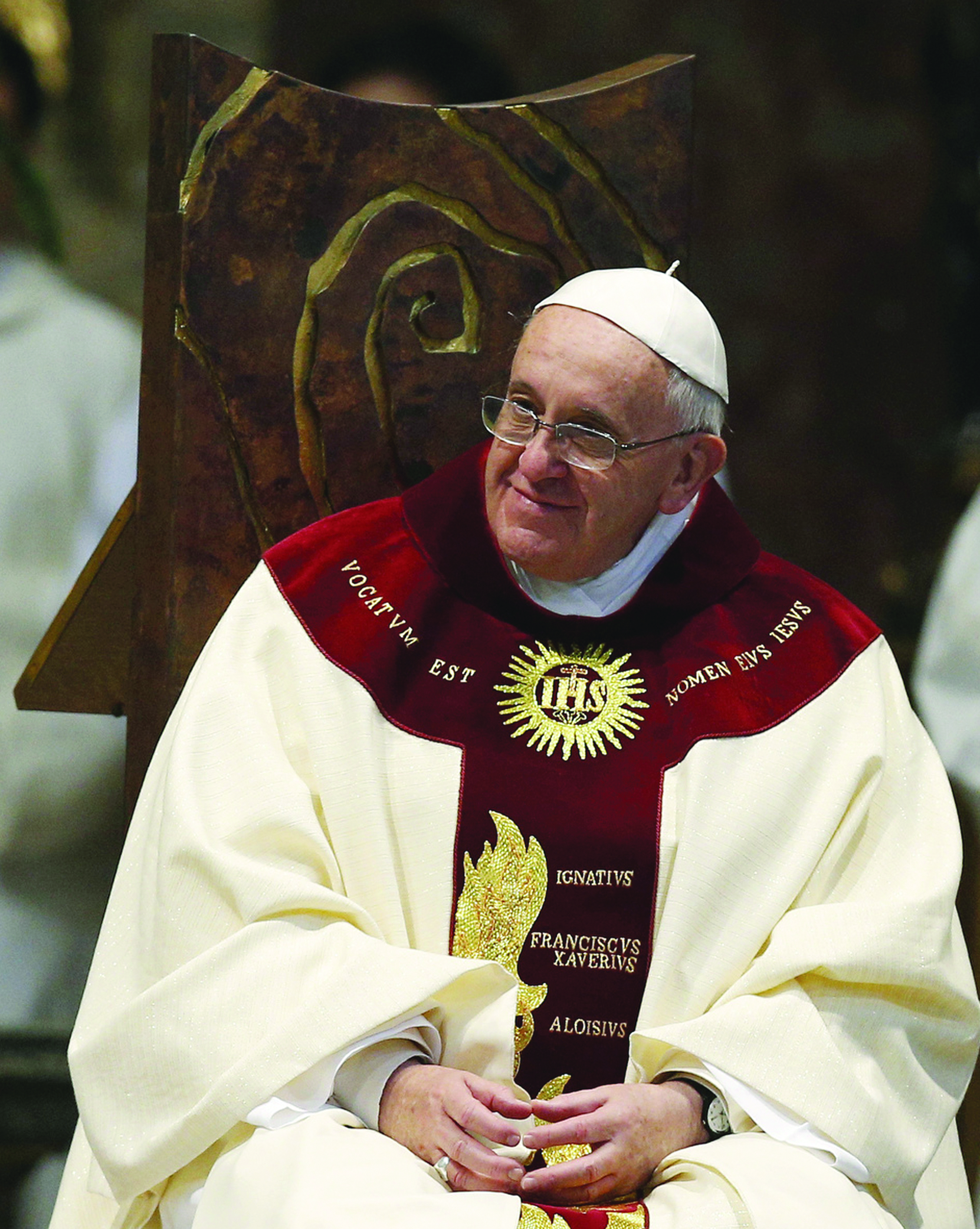
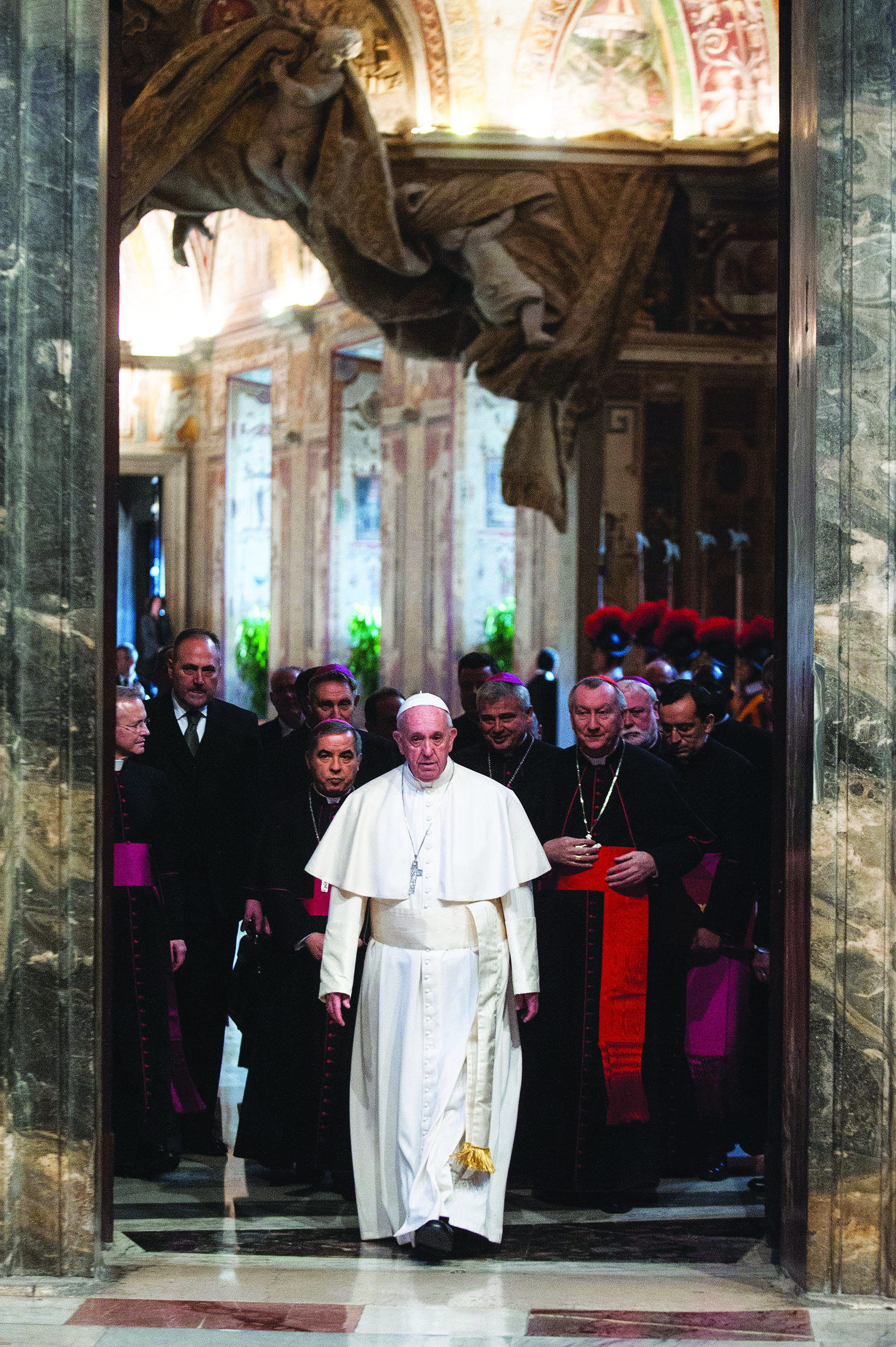
Facebook Comments